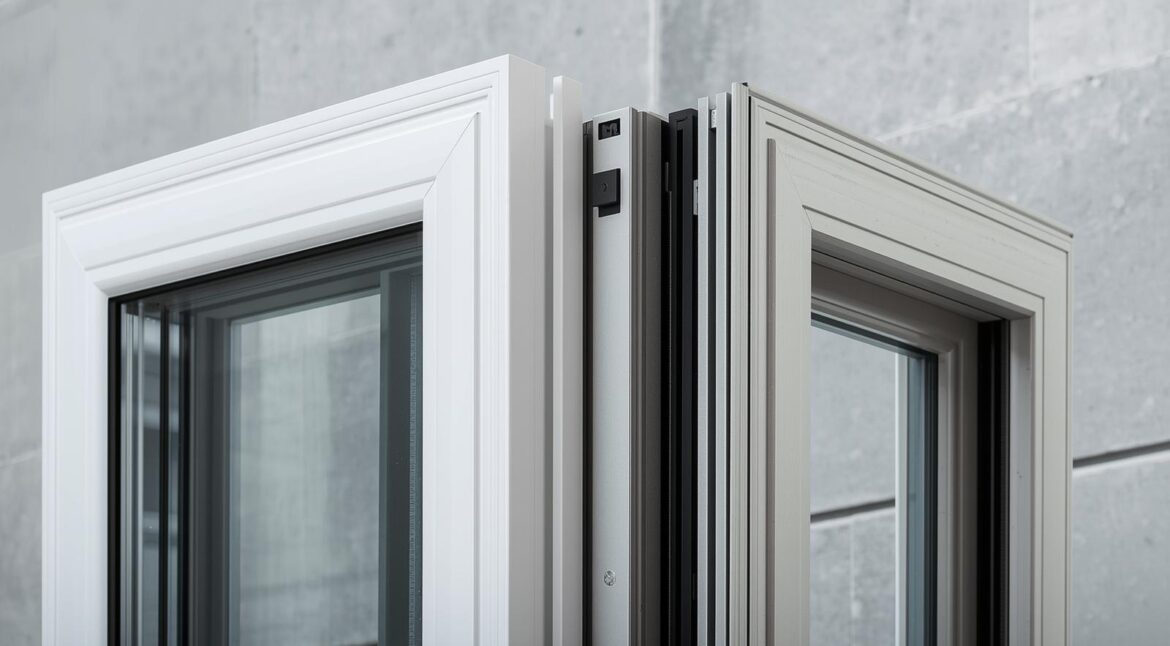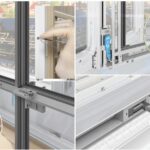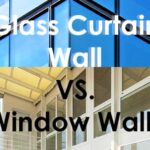Choosing between uPVC windows and aluminium windows can feel confusing. Both materials have improved a lot over the years, and each offers unique benefits for different needs and budgets. Whether you’re upgrading your home, renovating an office, or exploring options for aluminium windows in Dubai, understanding the real differences will help you make a smart choice.
We should go further into the comparisons of design, performance, cost and long term value of the two.
What Are uPVC and Aluminium Windows?
uPVC is an abbreviation of unplasticised polyvinyl chloride. It is a hard, stiff, and high-maintenance type of plastic applied to window and door frames. It gained popularity as it does not rot, warp or rust like metal and wood.
Aluminium windows, however, are constituted of light metal that is exceedingly strong. Aluminium is regarded to have a sleek and modern appearance and strength, hence it is best suited with large glass properties and a minimal frame design.
The two materials fulfil the same task, that is to maintain your space secure, insulated and fashionable yet in different manners.
Material Strength and Durability
Aluminium is a naturally strong material. It would be able to accommodate bigger glass windows with thinner frames, which would look clean and modern. It is particularly common in high-rise buildings or houses that are interested in a minimalistic design. Due to the fact that aluminium does not bend or distort due to the sunlight and temperature variations, it is ideal to be used in extreme weather conditions.
uPVC windows are marginally less firm, though strong enough to be used in most cases in the home. Current reinforced uPVC structures come with internal steel cores that enhance their longevity, as it is also non-corrosive and thus cannot rust or peel over the years of rain and humidity.
In short:
- Aluminium is stronger and more rigid, and it is suitable for large window opening.
- uPVC is more applicable in coastal or wet environments in that it is anti-corrosive.
Thermal and Sound Insulation
Insulation is one of the largest distinctions between the two materials.
uPVC is a natural insulator. It has many chambers which create a trap that traps air within and assists in keeping the interior temperatures controlled and minimising heat loss. What it implies is that uPVC windows will ultimately reduce your electricity cooling and heating expenses.
Aluminium is a heat conductor that is used to make it less efficient. But in current aluminium windows, there is a plastic thermal break between the inner and outer frames to eliminate loss of heat and enhance insulation.
The two materials are also used successfully in sound insulation in combination with the double or triple glazing. However,uPVC has a minor advantage of excluding external noise, particularly in active cities.
Style, Design, and Aesthetics
When it comes to looks, aluminium windows take the lead. The metal allows for thinner profiles and larger glass panels, creating a sleek, contemporary appearance. They suit modern architecture beautifully and are available in various powder-coated finishes, from matte black to metallic silver.
uPVC windows come in many colours and wood-grain finishes. While their frames are usually thicker, today’s manufacturing techniques have made them more attractive and versatile. For traditional or classic homes, uPVC offers a softer, homier feel.
In simple terms:
- Aluminium: modern, minimalist, and luxurious.
- uPVC: classic, cosy, and affordable.
Maintenance and Lifespan
Both materials are easy to maintain, but in slightly different ways.
uPVC almost needs no maintenance. A wet cloth wiping is enough to keep it clean. It does not require repainting or polishing and does not respond to humidity or sunlight. Aluminium is a metal and can be scratched or faded after some time, but contemporary powder coating runs away with most of the problems. It will appear fresh by cleaning it quickly every now and then.
The two materials are long-lasting in terms of lifespan. Aluminium frames of high quality can last up to 40-50 years, provided the windows are well maintained. uPVC windows can last up to 25- 35 years.
When you want something that looks beautiful with little effort, well, both of them are good over decades, the aluminium just a little longer.
Cost Comparison
In Dubai, uPVC windows are typically 20–30% more affordable than aluminium ones, making them a cost-effective choice for homeowners seeking good insulation and durability. A standard uPVC window usually costs between AED 400 to AED 850, while aluminium windows range from AED 500 to AED 800, depending on size, glazing, and design.
High-end aluminium systems with thermal breaks or powder-coated finishes can exceed AED 750 per square metre, offering exceptional strength and a sleek appearance. Though aluminium requires a higher upfront investment, its 30+ year lifespan ensures long-term value and durability in Dubai’s extreme climate.
Sustainability and Environmental Impact
Many homeowners are becoming concerned with sustainability.
uPVC is a recyclable product, though its recycling is more difficult because of the additives in the production process. However, recycled uPVC has become popular among many manufacturers to minimise waste.
Aluminium, as a recyclable material, is one of the most recyclable materials on earth. It is reusable as it can be melted again and again without degradation. This renders the use of aluminium windows a great option in eco-friendly buildings and green building development.
Aluminium is the best choice when it comes to sustainability.If sustainability is your top priority, aluminium takes the lead.
Which One Is Right for You?
The right choice depends on your needs, location, and style preferences.
| Upvc Windows | Aluminium Window |
| Excellent insulation and noise reduction | Sleek, modern designs with large glass areas |
| Low maintenance at a lower price | Maximum durability and lifespan |
| A comfortable, traditional appearance | Strong resistance to harsh sunlight or strong winds |
For example, aluminium windows in Dubai are highly popular because they can handle extreme heat while maintaining their shape and colour. On the other hand, in cooler or coastal climates, uPVC often performs better due to its insulating and corrosion-resistant properties.
Conclusion
Both uPVC and aluminium windows bring excellent benefits; it all depends on what you value most. If you prefer better insulation, lower maintenance, and budget-friendly options, uPVC windows are a great fit. But if you’re after a modern look, superior strength, and long-term durability that stands up to Dubai’s heat, aluminium windows are the smarter investment. Whichever you choose, make sure it complements your lifestyle and environment.
Looking to upgrade your windows with expert guidance and premium quality? Contact us today at FAM Aluminium and let our team help you find the perfect fit for your home or office.





